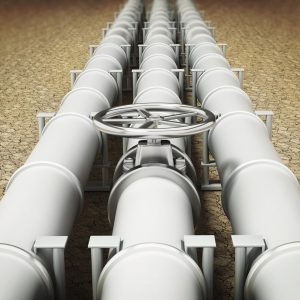 The Gas market in Nigeria is expected to grow rapidly, as Nigeria’s policy aims to use gas to generate electricity, create new Gas Based Industries, and use it as automobile fuel. A new pipeline known as the Obiafu-Obrikum-Oben (OB3) gas pipeline is expected to improve the supply of gas to the country. However, the Nigerian government must still do more to make the gas market a success.
The Gas market in Nigeria is expected to grow rapidly, as Nigeria’s policy aims to use gas to generate electricity, create new Gas Based Industries, and use it as automobile fuel. A new pipeline known as the Obiafu-Obrikum-Oben (OB3) gas pipeline is expected to improve the supply of gas to the country. However, the Nigerian government must still do more to make the gas market a success.
The NEPA’s activities have taken on strategic significance, with multiplier effects on the Nigerian economy. At an earlier stage in gas development, the activities of NEPA were in line with the social responsibility of the government but not necessarily dictated by the commercial realities of the market. NEPA, as a government monopoly, enjoyed preferential treatment. But it is clear that the NEPA has not lived up to the expectations. It is now time for the government to implement a market-led pricing regime for Nigeria’s gas industry.
While the domestic gas network is dominated by NEPA, the industrial sector is also benefiting from the gas supply. Currently, the NEPA accounts for 70 percent of the country’s gas demand. Compared to other fossil fuels, natural gas has lower carbon dioxide emissions per unit of energy. It is therefore only necessary to utilize gas in power generation where it is available at a competitive price. The pricing structure in Nigeria is favourable for NEPA operations.
While oil remains the key source of energy in the country, the Nigerian gas market has become a thriving industry. The country has massive natural gas reserves and a clear advantage in the clean fuel sector. Nigeria is one of the largest in Africa in terms of proven oil reserves, and its natural gas reserves amount to 49.4 billion cubic meters. The country’s natural gas reserves are highly sought after for its low sulfur content, which is necessary for reducing sulfur in refined products.
The Nigerian government is actively pursuing projects that will make use of natural gas. As of today, 63 percent of associated gas is flared. However, with the new pipeline, the government is actively pursuing natural gas utilization projects. This will help improve the country’s economy and reduce its dependency on foreign oil. This will ultimately lead to greater employment and better quality of life. If the Nigerian government can create an environment conducive to the growth of LNG, the country can reap the benefits of abundant natural gas.
The oil and gas industry in Nigeria is a growing sector and will continue to grow. Nigeria is one of the largest oil producers in Africa and the fifth largest in the world. Its economy is reliant on the oil and gas industry, which accounts for over 95 percent of export earnings. But in recent years, Nigeria has failed to start any new projects. Even so, it is a promising time to invest in the Nigerian gas market.
